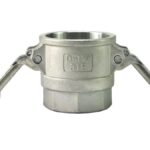The U.S. Department of Labor’s Occupational Safety and Health Administration (OSHA) reveals that fall protection, hazard communication, and respiratory protection are the top three most frequently violated standards. These standards protect workers from work-related injuries but sadly, some employers are willing to risk the safety of their employees so they can save money.
If you’ve had a work injury, the thought of suing your employer might have crossed your mind. According to Arizona Injury Law Group, PLLC, employers must take proactive measures to prevent accidents and promote a safe and productive workplace.
Understanding your rights and the process involved in taking legal action against your negligent employer is important. In this post, we will answer the question of whether or not you can sue your employer after a work injury.
Legal Basis for Suing Employer
It’s worth noting that apart from ensuring the safety standards in the workplace, employers should also teach all employees what to do when they get injured at work. Reporting the injury, getting medical help, and filing a workers’ compensation claim should be the first steps to take in the event of an injury. It’s important to know the rules where you live and work because each state has its own set of rules.
In most cases, the primary legal basis for suing your employer after a work injury is through workers’ compensation laws. These laws are designed to provide benefits to employees who are injured on the job, regardless of fault.
By accepting workers’ compensation benefits, you typically waive your right to sue your employer for negligence. However, there are exceptions to this rule. If your employer intentionally caused your injury or if a third party, such as a product manufacturer or contractor, contributed to your injury, you may be able to pursue a separate lawsuit against them.
It’s important to consult with a qualified attorney who specializes in workplace injury cases to determine the best course of action for your specific situation.
Employer Negligence and Liability
Understanding the extent of your employer’s negligence and liability is important when determining your legal options after a work injury. If your employer fails to provide a safe work environment, properly train employees, or maintain equipment, they may be considered negligent.
This negligence can result in a range of injuries, from minor accidents to severe incidents. Since your employer has a legal responsibility to ensure a safe workplace, if they breach this duty, they can be held liable for any harm caused to you.
Employer liability can vary depending on the circumstances of the injury. In some cases, employers may be held strictly liable for work-related injuries, meaning that fault doesn’t need to be proven. Other situations may require demonstrating that the employer’s negligence directly led to the injury.
By proving negligence, you may be able to pursue compensation for medical expenses, lost wages, and pain and suffering.
Exceptions to Workers’ Compensation
While workers’ compensation generally provides benefits to employees injured on the job, there are exceptions where you may have grounds to sue your employer.
As mentioned, one exception to this is if your employer intentionally caused your injury. In such cases, you may be able to pursue a lawsuit against your employer for damages beyond what workers’ compensation would cover.
If a third party not affiliated with your employer contributed to your work injury, you might have the right to seek compensation from that party through a personal injury lawsuit.
If your employer doesn’t carry workers’ compensation insurance as required by law, you may be entitled to sue them for damages resulting from your work-related injury. Understanding these exceptions is important when evaluating the best course of action to take following a work injury.
Steps to Take for Legal Action
To initiate legal action after a work injury, begin by consulting with an experienced personal injury attorney. This step is very important, as they can assess the details of your case and provide guidance on the best course of action.
Your attorney will help determine if you have grounds to sue your employer for negligence or intentional harm that led to your work-related injury.
After consulting with your attorney, the next step is typically to file a lawsuit against your employer. Your attorney will assist in preparing the necessary legal documents and ensuring that your case meets all the required legal standards. You need to follow your attorney’s advice closely to build a strong case.
Throughout the legal process, maintain thorough documentation of all medical records, expenses related to your injury, and any communication with your employer regarding the incident. This documentation will serve as evidence to support your case and maximize your chances of a successful outcome.
By following these steps and working closely with your attorney, you can take the necessary actions to seek legal recourse for your work injury.
Seeking Legal Counsel and Support
A skilled attorney specializing in workplace injuries can provide valuable guidance and support throughout the legal process. When selecting an attorney, look for someone with experience in handling similar cases and a track record of success in obtaining fair compensation for their clients.
Your attorney can help you understand your rights, assess the strength of your case, and handle communication with your employer’s insurance company and legal team on your behalf, relieving you of some of the stress associated with pursuing a lawsuit.
Your attorney will work to build a strong case on your behalf, gathering evidence, interviewing witnesses, and negotiating a settlement if possible. Having a knowledgeable attorney by your side can significantly increase your chances of a successful outcome in your work injury case.
Conclusion
You can sue your employer for a work injury if they were negligent or at fault. To relieve yourself from the stress of filing a personal injury case, you should seek the support of a competent lawyer.







